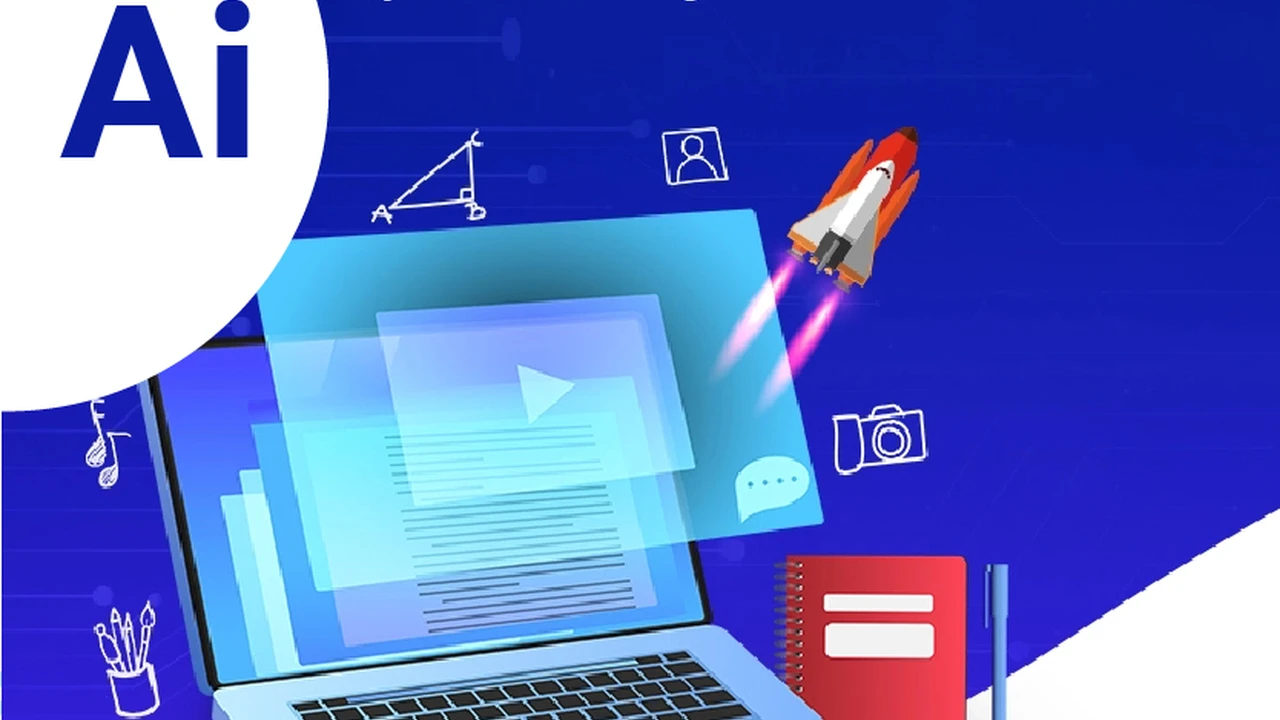5 Most In-Demand Skills for the Future Job Market
Discover the 5 most in-demand skills for the future job market. Equip yourself with essential competencies for career growth.

5 Most In Demand Skills for the Future Job Market
Hey there, future-proof professional! Ever wonder what skills are going to keep you ahead of the curve in the ever-evolving job market? It's a wild ride out there, with technology advancing at warp speed and industries transforming almost overnight. What was hot yesterday might be lukewarm today, and completely obsolete tomorrow. So, how do you stay relevant? How do you ensure your resume doesn't end up in the digital dustbin? Well, it all boils down to acquiring and honing the right skills. We're not just talking about technical prowess here; we're also diving into those crucial soft skills that make you an invaluable asset to any team. Let's break down the top 5 most in-demand skills that are practically screaming for your attention, and how you can get started on mastering them. Think of this as your personal roadmap to career growth and stability in the years to come.
1. Artificial Intelligence and Machine Learning AI ML Skills for Innovation
Alright, let's kick things off with a big one: Artificial Intelligence (AI) and Machine Learning (ML). If you haven't heard these terms buzzing around, you might be living under a rock! AI and ML aren't just futuristic concepts anymore; they're deeply embedded in our daily lives, from the recommendations you get on Netflix to the way your smartphone recognizes your face. And guess what? Businesses are scrambling to find people who can build, manage, and understand these powerful technologies. We're talking about everything from automating mundane tasks to predicting market trends and even developing new medical treatments. The demand for AI and ML specialists is skyrocketing, and it's showing no signs of slowing down.
Why AI ML Skills are Crucial for Your Career
Why should you care? Simple. AI and ML are transforming every industry imaginable. Whether you're in finance, healthcare, marketing, or manufacturing, AI is going to play a significant role. Companies need people who can not only work with AI systems but also understand their implications, ethical considerations, and potential. This isn't just about being a data scientist; it's about being able to think critically about how AI can solve real-world problems and drive innovation. It's about being a problem-solver with a powerful new toolkit.
How to Acquire AI ML Skills Top Platforms and Courses
So, how do you get started? You don't need a Ph.D. in computer science to dip your toes into AI and ML. There are tons of fantastic resources out there. Here are a few top picks:
- Coursera: This platform is a goldmine. Look for specializations like 'Deep Learning Specialization' by Andrew Ng (a true legend in the field!) or 'Applied Data Science with Python Specialization' from the University of Michigan. These courses are structured, comprehensive, and often come with peer-graded assignments and certificates.
- edX: Similar to Coursera, edX offers university-level courses. Check out programs like 'Professional Certificate in Data Science' from Harvard or 'MicroMasters Program in Artificial Intelligence' from Columbia University. They often have a strong theoretical foundation combined with practical exercises.
- Udemy: If you prefer a more project-based or à la carte approach, Udemy is great. Search for courses like 'Machine Learning A-Z™: Hands-On Python & R In Data Science' or 'Python for Data Science and Machine Learning Bootcamp'. These tend to be more affordable and focus on practical application.
- Google AI Education: Google offers a wealth of free resources, including tutorials, courses, and tools like TensorFlow. Their 'Machine Learning Crash Course' is an excellent starting point for beginners.
- Fast.ai: This is a fantastic resource for a 'top-down' approach to deep learning. Their 'Practical Deep Learning for Coders' course is highly regarded and focuses on getting you building models quickly.
Recommended Products and Tools for AI ML Learning
Beyond courses, getting hands-on with tools is crucial:
- Python: This is the lingua franca of AI and ML. You'll need to learn it.
- TensorFlow and PyTorch: These are the two most popular open-source machine learning frameworks. Most courses will teach one or both.
- Jupyter Notebooks: An interactive computing environment that's perfect for experimenting with code, data, and visualizations.
- Google Colab: A free cloud-based Jupyter notebook environment that provides free access to GPUs, which are essential for deep learning.
- Kaggle: A platform for data science competitions, datasets, and code. It's an amazing place to practice your skills and learn from others.
Pricing: Coursera and edX often have subscription models (Coursera Plus is around $399/year) or per-course fees (ranging from $49 to several hundred dollars for a certificate). Udemy courses are typically one-time purchases, often heavily discounted (from $10-$200). Google AI Education and Fast.ai are largely free. Google Colab and Kaggle are also free to use.
2. Data Science and Analytics Unlocking Insights from Information
Next up, we have Data Science and Analytics. This skill set is closely related to AI and ML, but it focuses more on extracting meaningful insights from vast amounts of data. Think about it: every click, every purchase, every interaction generates data. But raw data is just noise. Data scientists and analysts are the ones who turn that noise into actionable intelligence. They help businesses understand their customers better, optimize operations, identify new opportunities, and make smarter decisions. In a world drowning in data, the ability to make sense of it is incredibly valuable.
The Growing Demand for Data Professionals
Why is this so in-demand? Because data is the new oil. Companies that can effectively leverage their data have a massive competitive advantage. From understanding customer behavior to predicting sales, data science is at the heart of modern business strategy. Roles like Data Analyst, Business Intelligence Developer, and Data Scientist are consistently ranked among the top jobs, and the demand continues to outstrip supply.
Best Resources for Learning Data Science and Analytics
Ready to dive into the world of data? Here's where to start:
- DataCamp: This platform is fantastic for hands-on learning with interactive exercises. They offer career tracks for Data Scientist, Data Analyst, and more, covering Python, R, and SQL.
- Codecademy: Similar to DataCamp, Codecademy provides interactive coding lessons. Their 'Data Science Career Path' is a good option for beginners.
- Google Data Analytics Professional Certificate (Coursera): This is a highly practical program designed for beginners, focusing on tools like spreadsheets, SQL, Tableau, and R. It's great for getting job-ready quickly.
- IBM Data Science Professional Certificate (Coursera): Another excellent program that covers Python, SQL, data analysis, visualization, and machine learning.
- edX: Look for courses from universities like MIT and Harvard on data analysis, statistics, and programming for data science.
Essential Tools and Software for Data Science
To become a data wizard, you'll need to master these tools:
- SQL: Essential for querying and managing databases.
- Python or R: The primary programming languages for data analysis and statistical modeling.
- Excel/Google Sheets: Don't underestimate the power of spreadsheets for initial data exploration and reporting.
- Tableau or Power BI: For creating compelling data visualizations and dashboards.
- Pandas and NumPy (Python libraries): Crucial for data manipulation and numerical operations in Python.
- Scikit-learn (Python library): For machine learning algorithms.
Pricing: DataCamp offers a subscription model (around $25-$33/month, or $149-$399/year). Codecademy Pro is about $19.99/month. Coursera Professional Certificates can be accessed via Coursera Plus or individual course fees (typically $39-$79/month for a subscription to the specialization). Most of the software tools like Python, R, Pandas, NumPy, and Scikit-learn are open-source and free. Tableau and Power BI have free versions or trials, with paid versions for advanced features (Tableau Creator is $70/user/month, Power BI Pro is $10/user/month).
3. Digital Marketing and SEO Driving Online Visibility and Growth
In today's digital-first world, if your business isn't online, it barely exists. And simply being online isn't enough; you need to be seen, heard, and engaged with. That's where Digital Marketing and SEO (Search Engine Optimization) come in. This skill set is all about driving online visibility, attracting customers, and growing a brand in the digital space. From crafting compelling content to optimizing websites for search engines and running effective ad campaigns, digital marketers are the architects of online success. Every business, big or small, needs someone who understands how to navigate the digital landscape.
Why Digital Marketing is a Must-Have Skill
Why is this skill so hot? Because consumer behavior has fundamentally shifted. People discover products, services, and information online. Companies need experts who can connect with their target audience through various digital channels – search engines, social media, email, and more. A strong digital marketing strategy can make or break a business, and professionals who can deliver measurable results are incredibly valuable.
Top Platforms and Courses for Digital Marketing and SEO
Ready to become a digital marketing guru? Here are some excellent starting points:
- Google Digital Garage: Offers a fantastic free course called 'Fundamentals of Digital Marketing,' which is accredited and covers a broad range of topics.
- HubSpot Academy: Known for its free certifications in Inbound Marketing, Content Marketing, Email Marketing, and SEO. These are highly respected in the industry.
- Coursera: Look for specializations like 'Google Digital Marketing & E-commerce Professional Certificate' or 'Meta Social Media Marketing Professional Certificate.'
- Udemy: Offers a vast selection of courses, often very practical. Search for 'The Complete Digital Marketing Course - 12 Courses in 1' or specific SEO courses.
- SEMrush Academy: Provides free courses and certifications on SEO, content marketing, PPC, and more, often tied to their powerful SEO tools.
Recommended Tools for Digital Marketing and SEO Success
To excel in digital marketing, you'll need to get familiar with these tools:
- Google Analytics: Essential for tracking website traffic and user behavior.
- Google Search Console: Helps you monitor your website's performance in Google Search results.
- SEMrush: An all-in-one SEO and digital marketing toolkit for keyword research, competitor analysis, site audits, and more.
- Ahrefs: Another powerful SEO tool, particularly strong for backlink analysis and content research.
- Moz Pro: Offers a suite of SEO tools, including keyword explorer, link explorer, and site crawl.
- Hootsuite or Buffer: For managing and scheduling social media posts.
- Mailchimp or Constant Contact: For email marketing campaigns.
Pricing: Google Digital Garage and HubSpot Academy offer many free courses and certifications. Coursera Professional Certificates are typically $39-$79/month. Udemy courses are one-time purchases, often discounted ($10-$200). SEMrush Academy courses are free, but the SEMrush tool itself starts around $120/month. Ahrefs starts at $99/month. Moz Pro starts at $99/month. Hootsuite and Buffer have free tiers, with paid plans starting around $49/month. Mailchimp has a free plan for up to 500 contacts, with paid plans starting around $15/month.
4. Cybersecurity Protecting Our Digital World
As our lives become increasingly digital, the need to protect our information and systems from malicious attacks has never been more critical. This brings us to Cybersecurity. Every company, government agency, and even individual needs robust cybersecurity measures. From preventing data breaches to defending against ransomware and phishing attacks, cybersecurity professionals are the guardians of our digital world. The threats are constantly evolving, making this a field that requires continuous learning and adaptation, but also offers immense job security and high demand.
The Critical Importance of Cybersecurity Skills
Why is cybersecurity so vital? Because the cost of a data breach can be astronomical, not just in financial terms but also in terms of reputation and customer trust. With more people working remotely and more devices connected to the internet, the attack surface for cybercriminals is expanding rapidly. Companies are desperate for skilled professionals who can identify vulnerabilities, implement protective measures, and respond to incidents. This isn't just a niche IT role; it's a fundamental requirement for doing business in the 21st century.
Where to Learn Cybersecurity Top Programs and Certifications
Interested in becoming a digital defender? Here's how to get started:
- CompTIA Security+: This is often considered the foundational certification for a cybersecurity career. It covers core security functions and is vendor-neutral. Many online courses prepare you for this exam.
- Google Cybersecurity Professional Certificate (Coursera): A beginner-friendly program designed to get you job-ready in cybersecurity, covering topics like network security, incident response, and security operations.
- (ISC)² Certified in Cybersecurity (CC): A new entry-level certification from a highly respected organization, designed to help newcomers enter the field.
- Cybrary: Offers a wide range of free and paid cybersecurity courses, labs, and career paths.
- edX: Look for programs like 'MicroBachelors Program in Cybersecurity' from NYU or 'Professional Certificate in Cybersecurity' from Rochester Institute of Technology.
- SANS Institute: While more advanced and expensive, SANS offers some of the most respected and in-depth cybersecurity training and certifications.
Essential Cybersecurity Tools and Platforms
To practice cybersecurity, you'll encounter these tools:
- Wireshark: A network protocol analyzer for inspecting network traffic.
- Nmap: A network scanner for discovering hosts and services on a computer network.
- Metasploit: A penetration testing framework for developing and executing exploit code.
- Virtualization Software (e.g., VirtualBox, VMware Workstation Player): For setting up isolated environments to practice security concepts without affecting your main system.
- Linux (especially Kali Linux): A popular operating system for penetration testing and ethical hacking.
- SIEM (Security Information and Event Management) tools: For collecting and analyzing security logs (e.g., Splunk, ELK Stack).
Pricing: CompTIA Security+ exam costs around $392, with study materials varying (courses from $50-$500+). Google Cybersecurity Professional Certificate is $39-$79/month via Coursera Plus. (ISC)² CC exam is free for the first 1 million people, then $199. Cybrary offers free content, with paid subscriptions starting around $59/month. edX programs can range from a few hundred to a few thousand dollars. SANS courses are typically very expensive, often thousands of dollars. Most of the tools like Wireshark, Nmap, Metasploit, VirtualBox, and Kali Linux are free and open-source. Splunk has a free tier, with enterprise versions being very costly.
5. Critical Thinking and Problem Solving Navigating Complexity
Last but certainly not least, we have Critical Thinking and Problem Solving. You might be thinking, 'Wait, isn't that a soft skill?' Absolutely! And in an age dominated by technology, these human-centric skills are becoming even more valuable. As AI handles more routine tasks, the demand for people who can analyze complex situations, identify root causes, evaluate different solutions, and make sound judgments will only grow. This isn't about memorizing facts; it's about how you approach challenges, adapt to new information, and innovate. It's the skill that underpins success in every other skill we've discussed.
Why Critical Thinking is the Ultimate Soft Skill
Why is this so important? Because the world is getting more complex, not less. We're bombarded with information, often conflicting, and we face unprecedented challenges. Employers aren't just looking for people who can execute tasks; they're looking for people who can think independently, question assumptions, and come up with creative solutions. Critical thinking allows you to cut through the noise, make informed decisions, and contribute meaningfully to any project or organization. It's the skill that makes you indispensable.
Developing Your Critical Thinking and Problem Solving Abilities
How do you sharpen these crucial skills? Unlike technical skills, there aren't specific 'courses' in the same way, but rather approaches and practices:
- Engage in Deliberate Practice: Actively seek out problems to solve, whether at work, in personal projects, or even through puzzles and brain teasers.
- Ask 'Why' Repeatedly: Don't just accept information at face value. Dig deeper. Ask 'why' five times to get to the root cause of an issue.
- Seek Diverse Perspectives: Talk to people with different backgrounds and viewpoints. This broadens your understanding and challenges your own biases.
- Practice Active Listening: Truly understand what others are saying before formulating your response.
- Read Widely and Critically: Don't just consume information; analyze it. What are the author's assumptions? What evidence do they present?
- Learn Logic and Argumentation: Courses in philosophy or logic can significantly enhance your critical thinking. Platforms like Coursera and edX offer courses on critical thinking, logic, and reasoning.
- Case Study Analysis: Many business and technical courses incorporate case studies. Actively participating in these and dissecting real-world problems is excellent practice.
- Debate and Discussion: Engaging in respectful debates helps you articulate your thoughts, defend your positions, and understand counter-arguments.
Resources and Approaches for Enhancing Critical Thinking
While there aren't 'tools' in the software sense, these resources can help:
- Books: 'Thinking, Fast and Slow' by Daniel Kahneman, 'The Art of Thinking Clearly' by Rolf Dobelli, and 'Factfulness' by Hans Rosling are great reads.
- Online Courses: Search for 'Critical Thinking' or 'Problem Solving' on Coursera, edX, or Udemy. Many universities offer free introductory courses.
- Puzzles and Brain Games: Sudoku, chess, logic puzzles, and even video games that require strategic thinking can help train your brain.
- Mind Mapping Software (e.g., XMind, MindMeister): Can help you organize complex thoughts and visualize problems.
- Decision-Making Frameworks: Learning about frameworks like SWOT analysis, root cause analysis (e.g., 5 Whys), or decision matrices can provide structure to your problem-solving.
Pricing: Many online courses on critical thinking are available for free or at a low cost (e.g., $10-$50 on Udemy). Books are typically $10-$20. Mind mapping software often has free basic versions, with paid subscriptions starting around $5-$10/month.
So there you have it! These five skills are your ticket to staying relevant and thriving in the job market of tomorrow. Whether you're diving deep into the technical world of AI and data, mastering the art of digital influence, safeguarding our online presence, or simply sharpening your ability to think clearly and solve problems, investing in these areas will pay dividends for years to come. The best part? You can start learning many of these right now, often for free or at a very low cost. What are you waiting for? Your future self will thank you!
:max_bytes(150000):strip_icc()/277019-baked-pork-chops-with-cream-of-mushroom-soup-DDMFS-beauty-4x3-BG-7505-5762b731cf30447d9cbbbbbf387beafa.jpg)






